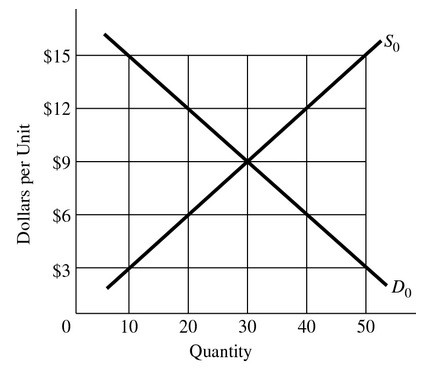Answer the following statements true (T) or false (F)
1. The purchasing-power-parity theory holds that exchange rates should equalize the inflation rates among the trading nations.
2. The expectations of speculators in the United States that the exchange rate for the euro will fall in the future will increase the supply of euros in the foreign exchange market and decrease the exchange rate for the euros.
3. If a nation has a balance of payments deficit and exchange rates are flexible, the price or value of that nation's currency in the foreign exchange markets will rise.
4. Fixed exchange rates usually provide more certainty to those engaged in international trade.
1. F
2. T
3. F
4. T
You might also like to view...
The developing countries have been catching up to the lower-income industrial countries in terms of economic growth
Indicate whether the statement is true or false
If the actual market price were fixed at $15 per unit in Figure 3.2, Figure 3.2 Supply and Demand
Figure 3.2 Supply and Demand
A. There would be a shortage of 40 units. B. There would be a shortage of 20 units. C. There would be a surplus of 20 units. D. There would be a surplus of 40 units.